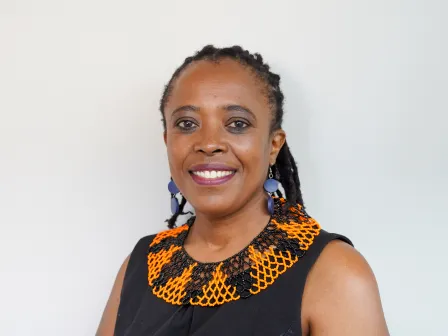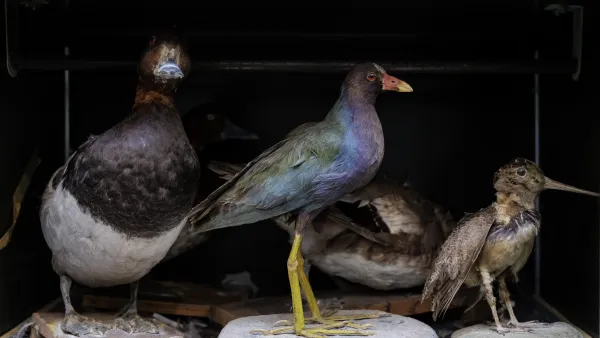During the fall 2022 semester, the Center for the Humanities will host Zameka Sijadu, PhD, a linguist from Stellenbosch University (South Africa).

Thanks to the BECHS-Africa Fellowship program, the Center for the Humanities will host linguistics scholar Zameka Sijadu, PhD, from Stellenbosch University (South Africa) during the fall 2022 semester. With funding from the Mellon Foundation, and in partnership with the University of Ghana, American University in Cairo and Stellenbosch University, the transnational program is aimed at enhancing research capacity for early career scholars in the humanities by supporting a residential fellowship exchange.
Washington University has previously hosted three BECHS-Africa Fellows: Dorothy Pokua Agyepong (spring 2020), Austin Dziwornu Ablo (spring 2022) and Mariama Zaami (spring 2022), all from the University of Ghana. This semester, Washington University sends its first BECHS-Africa Fellow abroad, with André Fischer, assistant professor of German, spending the fall at the University of Ghana.
Zameka Sijadu is a lecturer at Stellenbosch University, with research interests in language use in multilingualism, translanguaging, humor and argumentation theory. While collaborating with Washington University faculty in linguistics and African and African-American studies, she expects to spend her fellowship writing articles, lecturing on Xhosa culture and presenting her research to colleagues. Below, she gives a peek at her recent work on the language of the pandemic.
Can you give us a preview of your work on COVID and humor? Has there been anything in your research that was surprising or worrying or was otherwise remarkable?
During the COVID-19 pandemic, government officials in South Africa communicated COVID-19 information more often in African languages during national lockdown. The government of South Africa took, for the first time, into serious consideration that all citizens of the country should have equal linguistic access to information. During the pandemic it became clearer that language can either be a dividing or a unifying tool, depending on how it was used.
The coronavirus was seen as a common enemy to the country; therefore, it was crucial that everyone in the country — irrespective of their political affiliations — stand in unity. In his first lockdown address, the president declared war against the virus and himself as the commander in chief. Government ministers did what they could to communicate crucial information by using available multilingual resources such as translanguaging and code-switching. The focus of the government switched from external appraisal (how the international world views them) to internal appraisal (how citizens view them). It also became apparent to the government that political parties and political affiliations of citizens are not important during a time of war. The metaphoric use of the term “war” was instrumental in unifying the country. Language use and its functionality were the key tool to win the war on the COVID-19 pandemic.
I have taught humor to undergraduate classes for some time; however, during the pandemic, I realized that humor took social media platforms such as WhatsApp, YouTube and Twitter by storm in South Africa. It was clear that South Africans — both government officials and citizens — use humor as a means to enforce lockdown laws, to bring correction and to criticise the government. They also used humor as a coping strategy.




